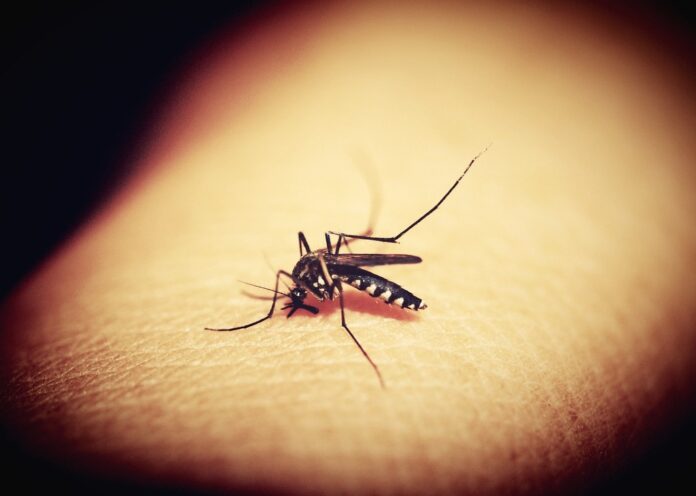Understanding Dengue Symptoms and Treatment: A Comprehensive Guide
What is Dengue Fever?
Dengue fever is a mosquito-borne viral infection that can cause severe flu-like symptoms. It is primarily spread by the Aedes mosquitoes, particularly Aedes aegypti. The infection can lead to fatal complications, and understanding dengue symptoms and treatment is crucial for effective management.
Common Symptoms of Dengue
Dengue symptoms generally appear 4 to 10 days after being bitten by an infected mosquito. Here are some common symptoms:
- High fever (up to 104°F or 40°C)
- Severe headaches
- Pain behind the eyes
- Joint and muscle pain (often referred to as “breakbone fever”)
- Skin rash
- Mild bleeding (nosebleeds, gum bleeding)
- Severe abdominal pain and vomiting (in severe cases)
If you notice any of these symptoms, consult a healthcare provider immediately. Early detection and access to proper medical care can significantly lower the risk of complications.
Diagnosing Dengue Fever
Diagnosis of dengue fever is primarily based on clinical signs and symptoms. Healthcare providers may perform specific tests, including:
- Blood tests: To check for the presence of the dengue virus or antibodies produced in response to it.
- Complete blood count (CBC): This helps assess blood platelet levels, which can drop significantly in dengue cases.
Understanding Dengue Severity
It’s important to recognize that dengue can range from mild to severe, with severe dengue (dengue hemorrhagic fever) posing significant health risks. Early diagnosis is warranted for high-risk patients.
Dengue Treatment Options
While there is no specific antiviral treatment for dengue fever, several dengue symptoms and treatment strategies are available to manage the infection effectively.
Medication for Dengue Fever
- Pain Relievers:
- Acetaminophen (Tylenol) is generally recommended to help reduce fever and alleviate pain.
- Avoid NSAIDs: Non-steroidal anti-inflammatory drugs like ibuprofen and aspirin should be avoided as they can exacerbate bleeding.
- Hydration:
- Fluid intake is vital. Patients should drink plenty of fluids to avoid dehydration, especially if experiencing vomiting or diarrhea.
- Oral rehydration solutions can be beneficial.
- Monitoring:
- Keeping track of symptoms and seeking immediate care if new ones arise is crucial, especially if a patient starts to feel worse after several days.
Best Homeopathic Medicine for Dengue Fever
Many people look for alternative treatments alongside conventional methods. Homeopathic remedies often mentioned include:
- Eupatorium perfoliatum: Commonly suggested for bone pain associated with dengue.
- Belladona: May help reduce fever and its symptoms.
- Rhus toxicodendron: Occasionally used where there is significant joint pain.
It’s essential to consult a qualified homeopathic practitioner for personalized guidance.
Natural Remedies for Dengue
In addition to medical treatment, some natural remedies may help boost immunity and promote recovery, such as:
- Papaya Leaf Juice: Traditionally believed to help increase platelet count.
- Neem Leaves: Known for their antiviral properties.
- Ginger Tea: Can soothe nausea and vomiting.
Always consult with a healthcare provider before introducing any alternative remedies.
Preventing Dengue Fever
Preventing dengue is crucial, especially in endemic areas. Key prevention strategies include:
- Mosquito control: Eliminate standing water in and around your home to reduce mosquito breeding.
- Use mosquito nets and screens: Protect yourself, especially during mosquito peak hours (early morning and late afternoon).
- Wear protective clothing: Long-sleeved shirts and long pants can help reduce the likelihood of bites.
- Insect repellent: Use repellents containing DEET or picaridin on exposed skin.
Vaccination
In some regions, a dengue vaccine is available for individuals who have had previous dengue infections. Consult your healthcare provider to see if vaccination is appropriate for you.
- The Unsealed Epstein Files: Truth, Power, and the Names That Shook the World
- Big Boost for India-US Trade: Trump Cuts Tariffs After Modi Talks
- The “Mother of All Deals”: India & EU negotiate.
- Disha Patani’s Latest X Post Sets Internet on Fire, Glamorous Photo Shoot Goes Viral
- The Shockwave: America Captures Maduro
Conclusion and Key Takeaways
Understanding dengue symptoms and treatment is fundamental for anyone living in or traveling to areas where dengue is prevalent. Key points to remember include:
- Recognize the symptoms early for prompt medical treatment.
- Stay hydrated and use acetaminophen for pain management.
- Avoid NSAIDs to prevent complications.
- Explore homeopathic and natural remedies, but consult with health professionals first.
By adhering to preventive measures, you can significantly lower your risk of infection. If you suspect dengue fever, contact a healthcare provider immediately for the best possible care and advice.
For more information about dengue fever and related concerns, consider visiting resources like the World Health Organization.
Feel free to reach out with any questions or comments, and let’s spread awareness about dengue fever and its management!
2024 aam admi party AAP AI america Anant Ambani Arvind kejriwal BJP BOLLYWOOD Bollywood news CHIEF MINISTER CONGRESS CRICKET FILM google Governance GUJARAT HEALTH History Hollywood INDIA INDIAN indian government Indian Leader IPL IPL 2024 jokes LIFESTYLE MOVIE REVIEW MUMBAI NARENDRA MODI pakistan PM Modi Radhika Merchant Ram mandir SOCIAL MEDIA SPORTS sports news summer season SUPREME COURT Technology trending trending news usa VIRAL NEWS







